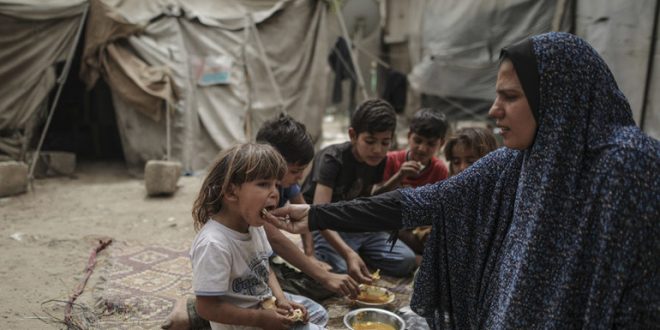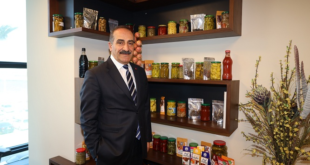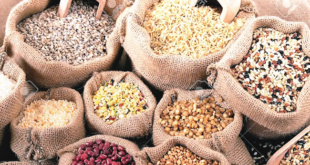Over 141 million people in the Arab world are exposed to food insecurity, International Monetary Fund (IMF) Managing Director Kristalina Georgieva warned Monday.

Georgieva, speaking at a conference in Riyadh, said that the IMF will add its voice to fight food trade restrictions in order to ease the situation.
Countries across the Middle East region and beyond have stepped in to support states battling high food inflation and shortages made more acute by global geopolitical developments and the growing risk of a global recession.
Georgieva said in a statement that Gulf Arab states “are planning to make further pledges soon” following the Arab Coordination Group’s recent announcement of an initial $10 billion to alleviate the global food supply crisis.
The IMF and Saudi Arabia signed an agreement on Monday to set up an IMF regional representative office in Riyadh.

Ensuring social stability through adequate provision of basic foodstuff is a priority beyond the borders of those directly affected, said Alice Gower, director of geopolitics and security at London-based advisory Azure Strategy.
“Staples such as wheat, rice and lentils are at risk of being inaccessible to food-poor communities across the region,” she told Reuters.
“A desire for regional stability – and therefore security – has seen increased investment from states such as Saudi Arabia and the UAE in countries under financial strain.”
 THE GLOBAL WINDOW OF TURKISH FOOD AND AGRICULTURE The Global Window of Turkish Food and Agriculture Sector
THE GLOBAL WINDOW OF TURKISH FOOD AND AGRICULTURE The Global Window of Turkish Food and Agriculture Sector









